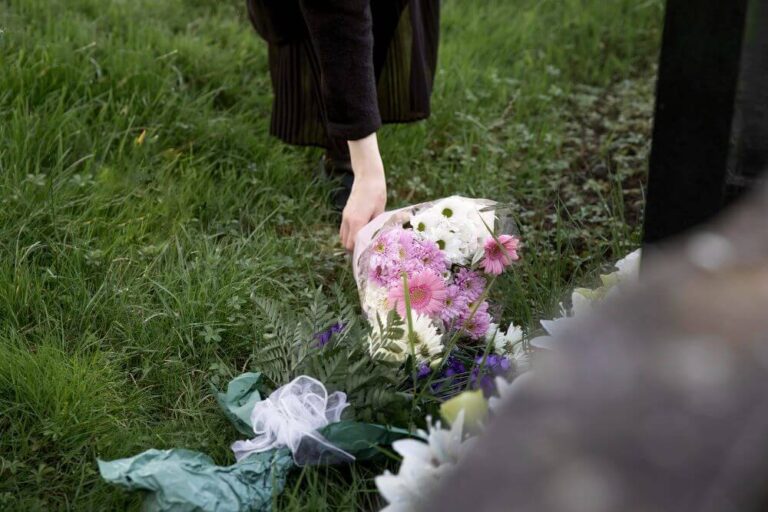In recent years, there has been a growing awareness of environmental sustainability in various industries, including the funeral sector.
As people become more conscious of their carbon footprint, the demand for eco-friendly funerals has risen significantly. In 2025, this trend continues to shape the way people approach end-of-life planning.
What Are Eco-Friendly Funerals?
Eco-friendly funerals, also known as green funerals, are designed to reduce the environmental impact of traditional burial and cremation processes. These funerals focus on sustainability by using biodegradable materials, avoiding toxic chemicals, and minimizing energy consumption.
Some common features of an eco-friendly funeral include:
- Biodegradable caskets made from materials like bamboo, cardboard, or woven willow.
- Natural burials, where the body is placed in a simple shroud or biodegradable coffin and buried in a natural setting without embalming chemicals.
- Aquamation (water cremation), an alternative to traditional cremation that uses water instead of fire to break down the body naturally.
- Tree-planting memorials, where a tree is planted in memory of the deceased instead of a traditional gravestone.
Funeral directors are at the forefront of these transformations, guiding families toward greener options and adjusting their services accordingly.
Why Are Eco-Friendly Funerals Gaining Popularity?
The rise of eco-friendly funerals is driven by several factors, including environmental concerns, cost-effectiveness, and personal values.
1. Growing Environmental Awareness
More people are recognizing the environmental impact of traditional burial and cremation methods. Traditional burials often involve embalming fluids, metal caskets, and concrete vaults, all of which contribute to pollution. Cremation, while considered more eco-friendly than burial, still releases carbon emissions. Green funerals provide a way for individuals to leave a smaller ecological footprint even after death.
2. Cost-Effective Alternative
Traditional funerals can be expensive, with costs for caskets, embalming, and burial plots adding up quickly. Eco-friendly funerals often eliminate many of these expenses, making them a more affordable option. Biodegradable caskets and natural burial sites tend to be less costly, helping families save money while honoring their loved ones.
3. Alignment with Personal Values
Many individuals prefer eco-friendly funerals because they align with their values. People who have lived sustainably throughout their lives often want their final arrangements to reflect their commitment to the environment. Green funerals allow them to leave a legacy that supports conservation and sustainability.
How Is the Funeral Industry Adapting?
As demand for eco-friendly funerals increases, the funeral industry is making significant changes to accommodate new preferences.
1. Offering Sustainable Funeral Packages
Many funeral homes now offer green funeral packages that include biodegradable caskets, natural burials, and environmentally friendly memorial services. These packages make it easier for families to choose sustainable options without extensive research.
2. Partnering with Green Cemeteries
Traditional cemeteries often require concrete vaults and embalmed bodies, which are not compatible with green burial practices. As a result, funeral directors are working with natural burial grounds that allow for eco-friendly burials. These cemeteries often serve as nature preserves, promoting conservation efforts.
3. Embracing New Technology
Innovations such as aquamation (alkaline hydrolysis) and organic body composting are gaining attention as sustainable alternatives to cremation and burial. Funeral homes that adopt these methods can offer environmentally friendly options that align with modern expectations.
4. Educating Families About Green Funerals
Many people are still unfamiliar with the concept of eco-friendly funerals. Funeral directors are taking on an educational role, helping families understand the benefits and available options. By providing information about sustainable funeral choices, they help individuals make informed decisions that reflect their values.
Challenges Facing the Eco-Friendly Funeral Industry
While the shift toward sustainable funerals is promising, the industry still faces some challenges in making green funerals more widely accepted.
1. Limited Availability of Green Burial Sites
Not all regions have natural burial grounds, making it difficult for families to choose a fully eco-friendly funeral. Expanding the number of green cemeteries will be essential for the future of sustainable funerals.
2. Regulatory and Legal Barriers
Some local regulations still require embalming or the use of burial vaults, which can limit access to green funeral options. Advocacy and policy changes will be necessary to accommodate growing demand for eco-friendly alternatives.
3. Cultural and Religious Considerations
Traditional funeral practices are deeply rooted in cultural and religious beliefs. Some families may be hesitant to embrace new burial methods if they do not align with their customs. Funeral directors must be sensitive to these concerns while offering sustainable choices.
Funeral directors play a vital role in this transition, offering guidance, sustainable options, and support for families who want to reduce their impact on the environment. As the funeral industry adapts to these changes, eco-friendly funerals will likely become a standard choice for those seeking a responsible and compassionate way to honor their loved ones.


